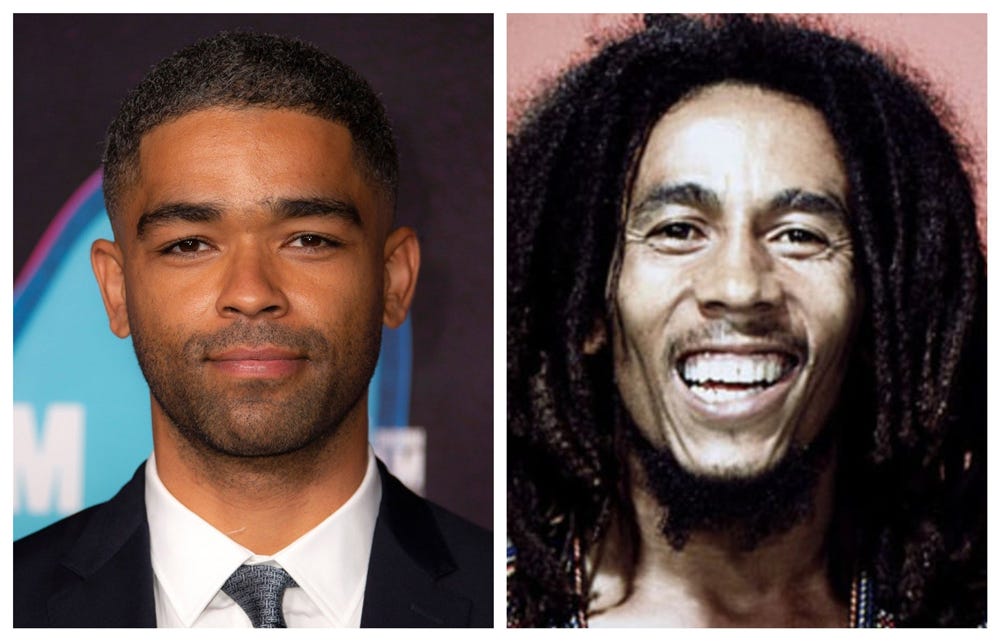Bob Marley: One Love
My Review on the film that would depress Bob Marley!
The film Bob Marley One Love (2024) was an incredible let down!
I had to watch it twice just to understand their attempt at explaining the story. This biopic promised so much yet it delivered so little in an incredibly wishy, washy, and wasteful way.
How does one begin to unravel the mystery of what went wrong? Even with Ziggy Marley's approval, Kingsley Ben-Adir should have heeded his initial instinct to decline the part, given his inability to sing and his lack of Jamaican or musical background.
Despite his best efforts, he never manages to cut it or connect with the character, nor does he convey the real-life Bob Marley’s incredible charismatic persona. The filmmaker unwisely inserts actual footage of the real Bob Marley at the end of the film, clearly underscoring his ineptness.
Who can one blame? Could director Reinaldo Marcus Green have been in a tug of war with Tuff Gong and the Marley family over what direction the storyline should take, as shreds of plot lines form only to dissolve without rhyme or reason?
With the exception of Rita Marley who was valiantly interpreted by Lashana Lynch, none of the characters are given any depth whatsoever, even Chris Blackwell is reduced to a mere caricature.
The complexity of Bob Marley’s relationships with many other women besides his wife Rita was only broached when the singer, in a jealous rage, confronted Rita, who brought up the fact that she raised his illegitimate children.
Cindy Breakspeare, Jamaica’s 1976 Miss World, who had a five-year passionate affair with Bob Marley and is the mother of Damian Marley, is reduced to a mere incomprehensible, undefined silhouette in the film.
Even musically, the piss-poor flashbacks do not do justice to the genius of Lee “Scratch” Perry, with whom Bob Marley recorded some of his very best works before their acrimonious fallout.
Why are such brilliant axiomatic songs as “Soul Rebel” and “Small Axe” not featured? After all, the album BURNIN’ was released in 1973 as a follow-up to CATCH A FIRE and was remixed by Chris Blackwell while the band was on tour.
Why, for that matter, is Peter Tosh unjustly ignored and merely glimpsed in the awful flashback to the recording of “Simmer Down” at the Coxsone Dodd Studio, a song that Peter Tosh hated despite it having been their first Jamaican Number One hit?
The musical interludes in the film are its best feature, but those musical fragments leave one wanting more, and the progression of Marley’s musical compositions is not explored, as the fireside sequence implying the composition of “Redemption Song” is disrespectfully inept and unsatisfactory.
Why I found the failings of this film so frustratingly annoying is because in 1973 I joined The Rolling Stones, who were recording “Goat’s Head Soup" in Jamaica, fell head over heels in love with reggae music, hobnobbed with many legendary Jamaican music figures, and even eventually briefly met Bob Marley that same year in London.
But above all, in Jamaica, I had a Rastafarian Revelation that vividly demonstrated the Sublime Universality of the Creed and had a lasting influence on my life.
In conclusion, alas, I cannot recommend this film, in sharp contrast to Elvis (2022), which was so surprisingly good!
If you love Bob Marley, there are a number of excellent documentaries that you should watch instead, including that of my beloved old friend Esther Anderson, Bob Marley: The Making of a Legend.





